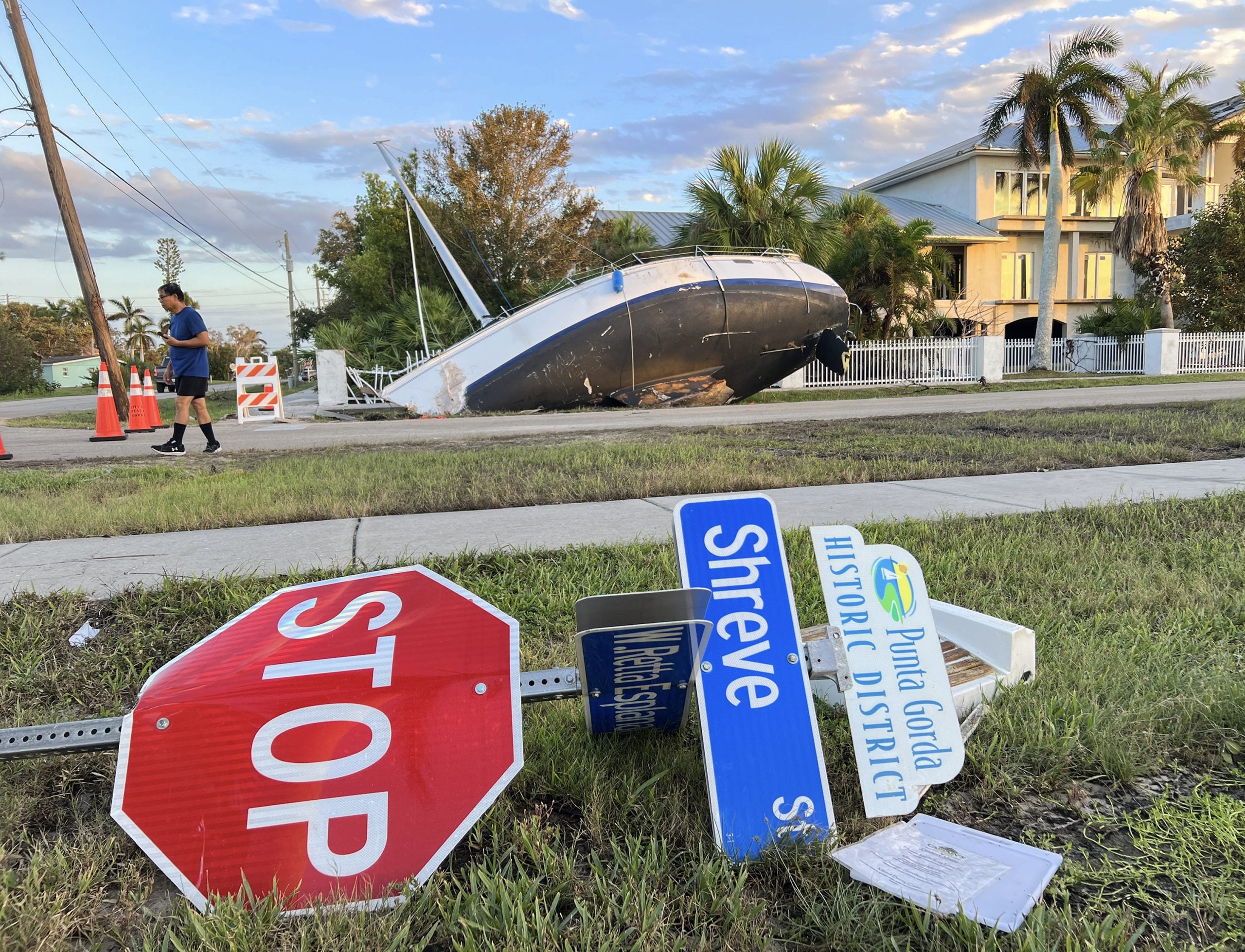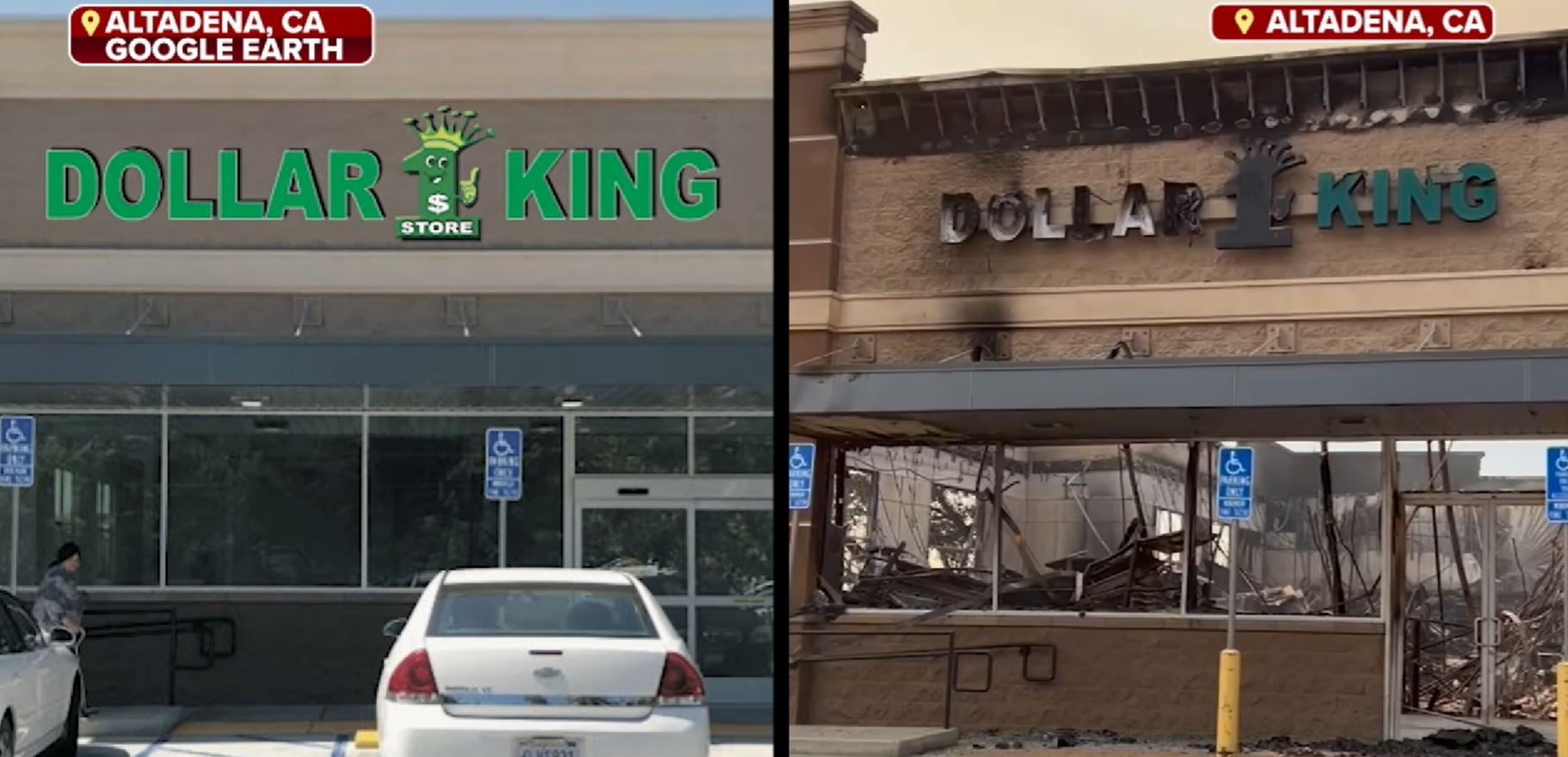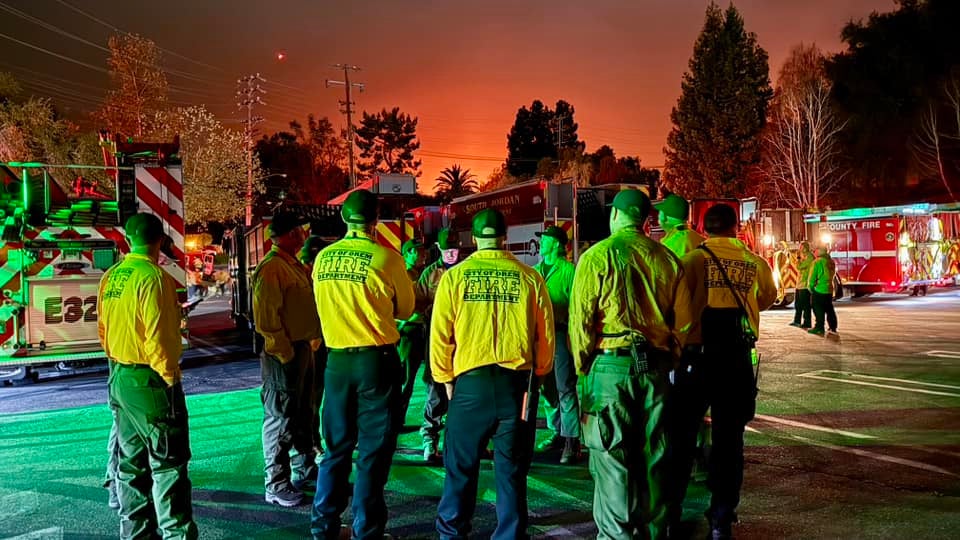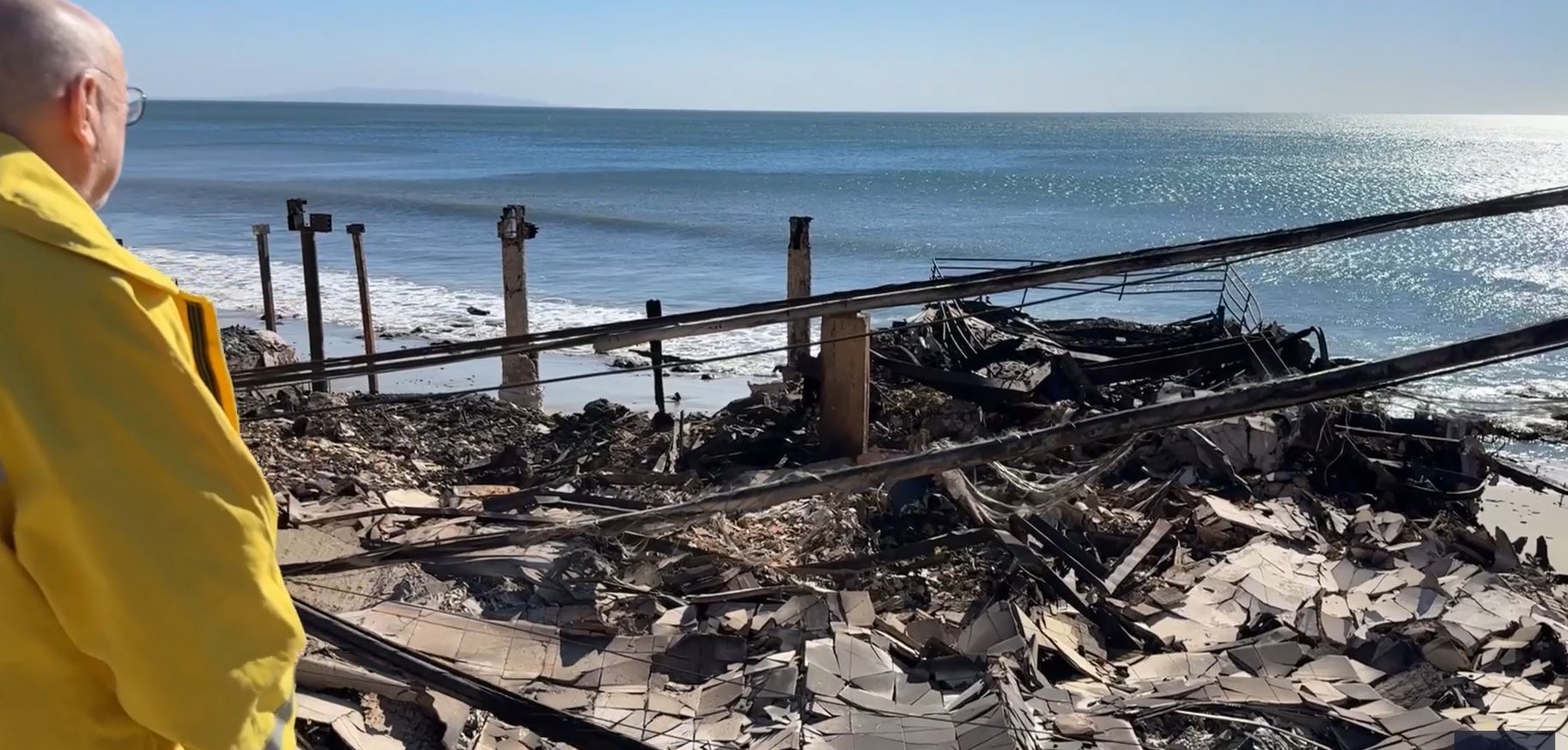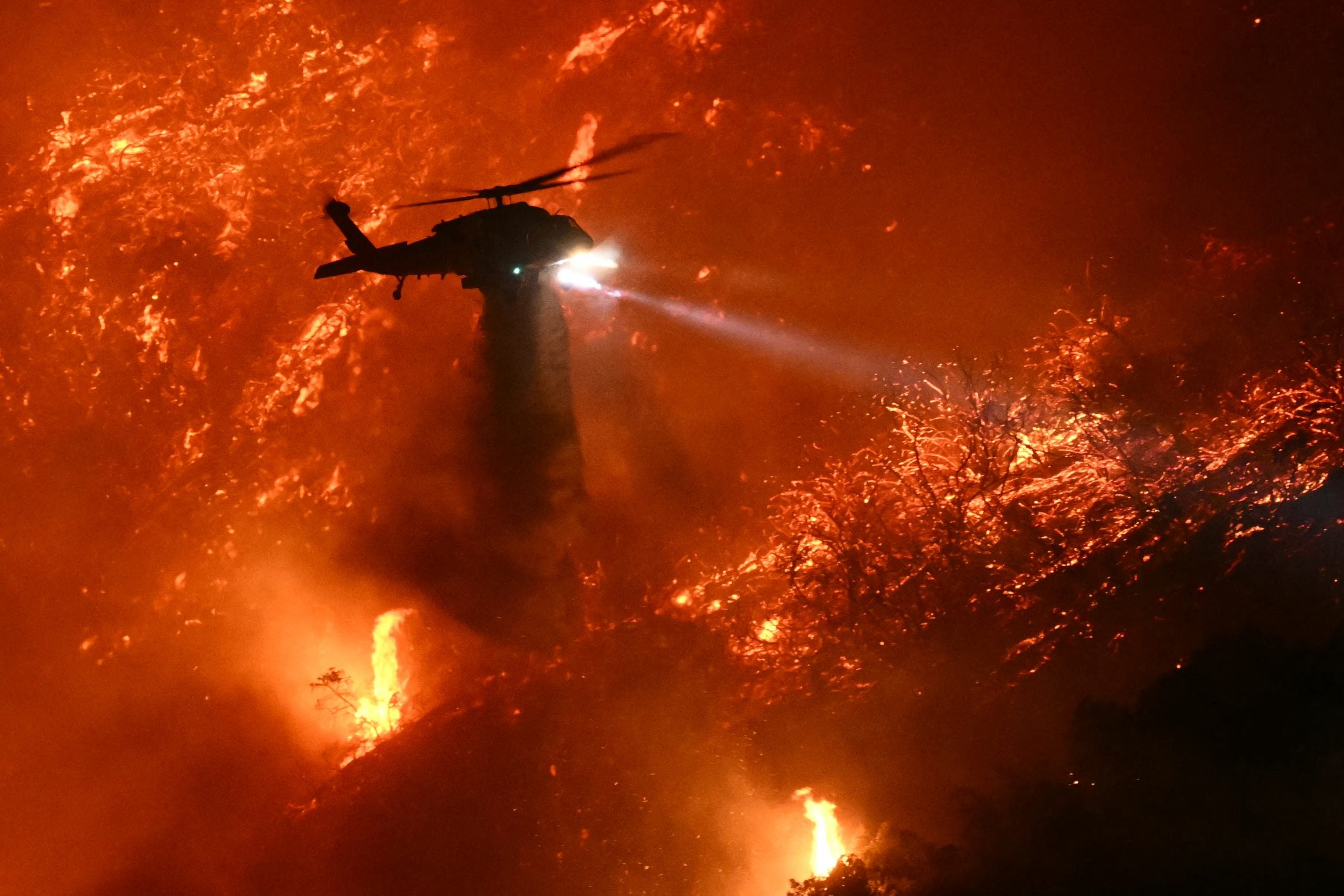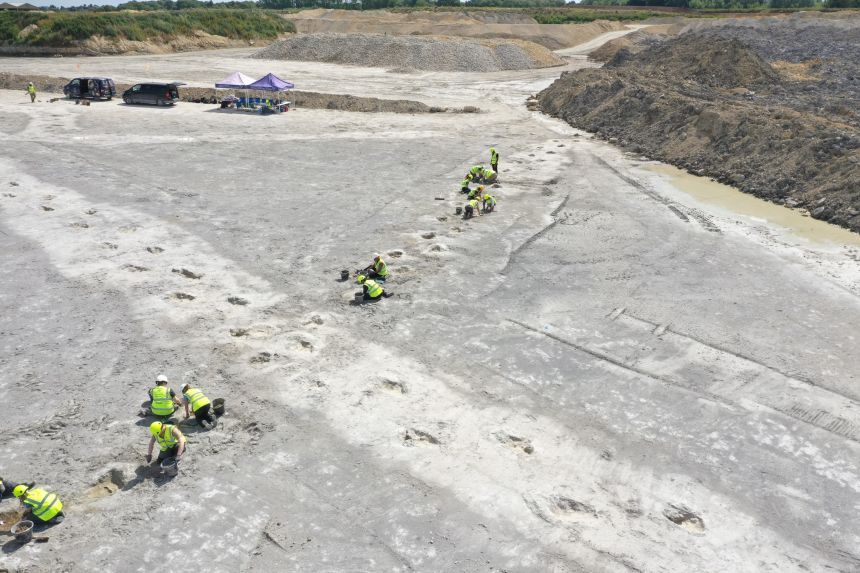Extreme weather has impacted the lives of millions of people across the U.S., and FOX Weather is looking back at some of the biggest events that took place in 2024.From severe weather and hurricanes to other natural disasters and even a total solar eclipse, 2024 has been a year filled with emotion as people mourn those who were lost and celebrate once-in-a-lifetime celestial events.The catastrophic and deadly impacts from Hurricane Helene dominated the headlines in September and is an event that FOX Weather continues to highlight as communities struggle to rebuild and regain a sense of normalcy months after the disaster.Helene made landfall along Florida’s Big Bend region on Sept. 26 as a powerful Category 4 hurricane and raced off to the north through the Appalachian Mountains, leaving trails of destruction in its wake.More than 230 people were killed, with most of the dead coming from North Carolina, where catastrophic flooding swept away beloved family members, homes and businesses, making it the deadliest hurricane to strike the U.S. since Hurricane Katrina in 2005.Florida was struck again nearly two weeks after Helene, when what had become one of the most intense hurricanes on record in the Atlantic Basin made landfall near Siesta Key and sliced across the middle of the state.Hurricane Milton made landfall on Oct. 9 as a major Category 3 hurricane – down from its monster Category 5 intensity over the Gulf of Mexico the previous two days – plunging millions of people into darkness and spawning a deadly tornado outbreak that destroyed homes and businesses across South Florida.In fact, the National Weather Service office in Miami broke its own record for the most Tornado Warnings issued in one day, with 55 issued. The previous record for that office was set during Hurricane Ian in 2022.Back in April, more than 30 million people across 15 states, from Texas to Maine, were treated to a dazzling and emotional display during the last total solar eclipse in the continental U.S. for decades.The eclipse began in North America in Mazatlan, Mexico, and quickly moved to the northeast, eventually reaching American soil in Eagle Pass, Texas. Over the next hour, it zoomed across America’s heartland, through the Ohio Valley and Great Lakes, and into the Northeast and New England.One of the next best chances to catch a total solar eclipse in the Lower 48 states is set to occur on Aug. 12, 2045.A severe weather outbreak over the Memorial Day weekend left dozens of people dead, including children, when tornadoes, hail and damaging winds were reported across several states.The worst of the outbreak occurred during the overnight hours on May 25 when at least 20 tornadoes were seen on radar or in person, with damage being reported in Texas, Kansas, Missouri, Oklahoma, Arkansas and Alabama.Another wave of powerful and deadly storms produced more tornadoes and caused widespread damage the following day.A line of severe thunderstorms swept through parts of Texas and Louisiana in May, blasting the Houston area with winds up to 100 mph that left at least seven people dead and plunged more than 1 million utility customers into darkness.The derecho was so powerful that it blew windows out of Houston’s high-rise buildings and buildings under construction in nearby communities and caused transmission lines to tumble.Most of the damage was from straight-line winds, although a tornado was confirmed to have touched down near the community of Cypress.The largest wildfire in Texas state history scorched more than 1 million acres in only a few days in February, leaving at least one person dead and impacting dozens of structures.The Smokehouse Creek Fire broke out in the Texas Panhandle and grew from 300,000 acres to more than 1 million acres in two days as it raced off to the east. While some of the fire did move into parts of Oklahoma, the majority of the blaze was in Texas, where it became the largest fire in state history.To put the size of the fire into context, it burned an area nearly the size of Delaware from north to south, and if it had been burning in the Northeast, the flames would have stretched from Philadelphia to New York City.An extreme solar storm led to dazzling Northern Lights displays being seen as far south as Florida. The Northern Lights are typically only seen in states closest to the border with Canada, but the spectacular display was so vivid it was seen much farther south.People in Florida, Texas and Alabama reported seeing the sky filled with colors of pink, green and purple.A series of atmospheric river storms slammed California and the West Coast in February, triggering numerous reports of landslides, mudslides, flash flooding and high-water rescues.The relentless precipitation led to issues up and down the state, including heavy rain in Los Angeles, which had its fourth-wettest February on record.The ferocious winds knocked down trees across the region, including in Santa Cruz, and the heavy rain sent boulders the size of cars tumbling down mountainsides in the Montecito and Summerland areas.Catastrophic and deadly flooding slammed parts of New Mexico in October, prompting the state’s governor to declare a state of emergency as rapidly flowing floodwaters washed away vehicles, leading to the deaths of at least two people.Rain and thunderstorms moved over the Roswell area producing rainfall rates of 1-3 inches per hour, prompting a rare Flash Flood Emergency due to the dire situation.Hundreds of people needed to be rescued from the tops of cars and other vehicles as the water rushed around them.New Jersey’s strongest earthquake in 240 years struck the state in April, with nearly 180,000 people in New York City and other parts of the Northeast reporting feeling the shaking.The magnitude 4.8 earthquake struck about 8 miles northeast of Bridgewater, New Jersey, on April 5, and dozens of aftershocks were reported in the days and weeks that followed.The earthquake was the strongest in New Jersey since 1783 and the strongest felt in the New York City area since 1884.FOX Weather covered many other stories extensively in 2024, including Hurricane Beryl, which became the Atlantic Basin’s earliest Category 4 hurricane on record.Hurricane Debby, too, made headlines when it left several people dead in Florida and Georgia.
